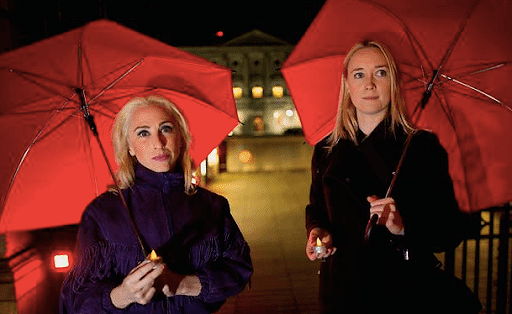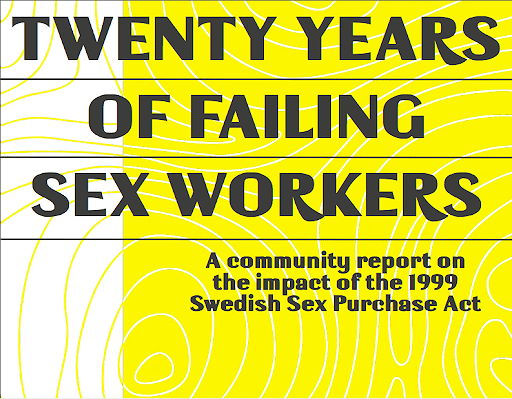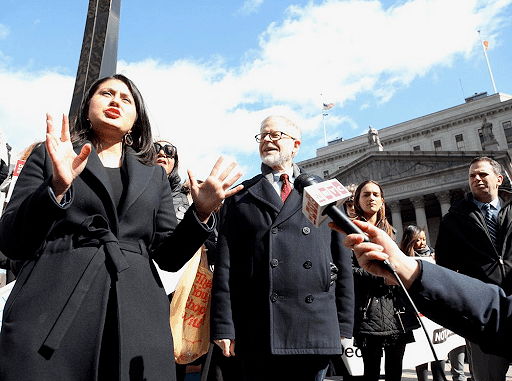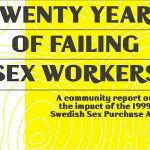September 18, 2019
The Human Trafficking and Exploitations Act of 2015, mimicking Sweden’s end demand model, criminalized the purchase of sex rather than the sale of commercial sex in Northern Ireland. The hope was that targeting demand would cut back on trafficking. After years of aggressive implementation, the policy has failed to achieve any of its stated goals.
Sex workers know that criminalizing any part of their work will force them into unsafe and unstable work environments and limit their ability to negotiate. Three years after its implementation, the effects of the law were investigated by a research commission from Queens University Belfast. It was clear that this model neither diminishes trafficking nor supports the health and safety of workers. The findings of the independent review were presented by the UK Department of Justice on September 18.
The key findings of the study show that:
* The law has had little effect on the demand for sexual services. Sex workers reported a surge in business in the period following its introduction.
* Based on the premise that criminalization would end demand for commercial sexual services, there should have been a greater “tailing off” of sex worker advertising during the period following implementation. This has not occurred. Instead, there has been a 5% increase in the number of sex work advertisements since the law passed.
* Between 2015 and 2018, there has been an increase in the number of reports of violent crimes committed against sex workers on the Uglymugs.ie website. Assaults increased from 3 to 13, sexual assaults have gone from 1 to 13, and threatening behavior increased from 10 to 42.
* Sex workers have also been victims of higher rates of anti-social and nuisance behavior and reported higher levels of anxiety and unease.
* Only 11% of clients said that the law would cause them to stop purchasing sex, and 76% of those surveyed felt that it had no impact on the ease with which they purchase sex.
The data suggests that end demand policies are correlated with an increase in abusive behavior and violence directed at sex workers. This contributes to increased feelings of marginalization; it makes workers less likely to report violence and even more vulnerable to abuse by police. Lastly, the goal of eradicating trafficking has gone unrealized. The law has not affected the rate of human trafficking for sexual exploitation.
The Nordic Model has been erroneously heralded as the moral gold standard in combatting sex trafficking across the globe. Advocates for the Nordic Model aren’t listening to sex workers; they prefer to think of them as helpless, voiceless victims. Help DSW fight to end trafficking and promote health and safety for sex workers by decriminalizing sex work.
Decriminalization works. Let’s fight for it.

Katie McGrew and Dearbhla Ryan of Sex Workers Alliance Ireland are pictured at a candlelit vigil to end violence against sex workers. (Photo: Fergal Phillips/The Independent)
DSW Newsletter #7 (October 2019)
Twenty Years Later, Data Show That the Swedish Model Harms Sex Workers

NY Should Allow Trafficking Survivors To Clear Criminal Records

DSW Joins Community Organizers at a Trans/Sex Workers Rights Mixer

“End Demand” Doesn’t Work in Ireland

DSW in the News

 Twenty Years Later, Data Show That...
Twenty Years Later, Data Show That...
 NY Should Allow Trafficking Survivors To...
NY Should Allow Trafficking Survivors To...
 DSW Joins Community Organizers at a...
DSW Joins Community Organizers at a...
 “End Demand” Doesn’t Work in Ireland
“End Demand” Doesn’t Work in Ireland
 DSW in the News
DSW in the News
